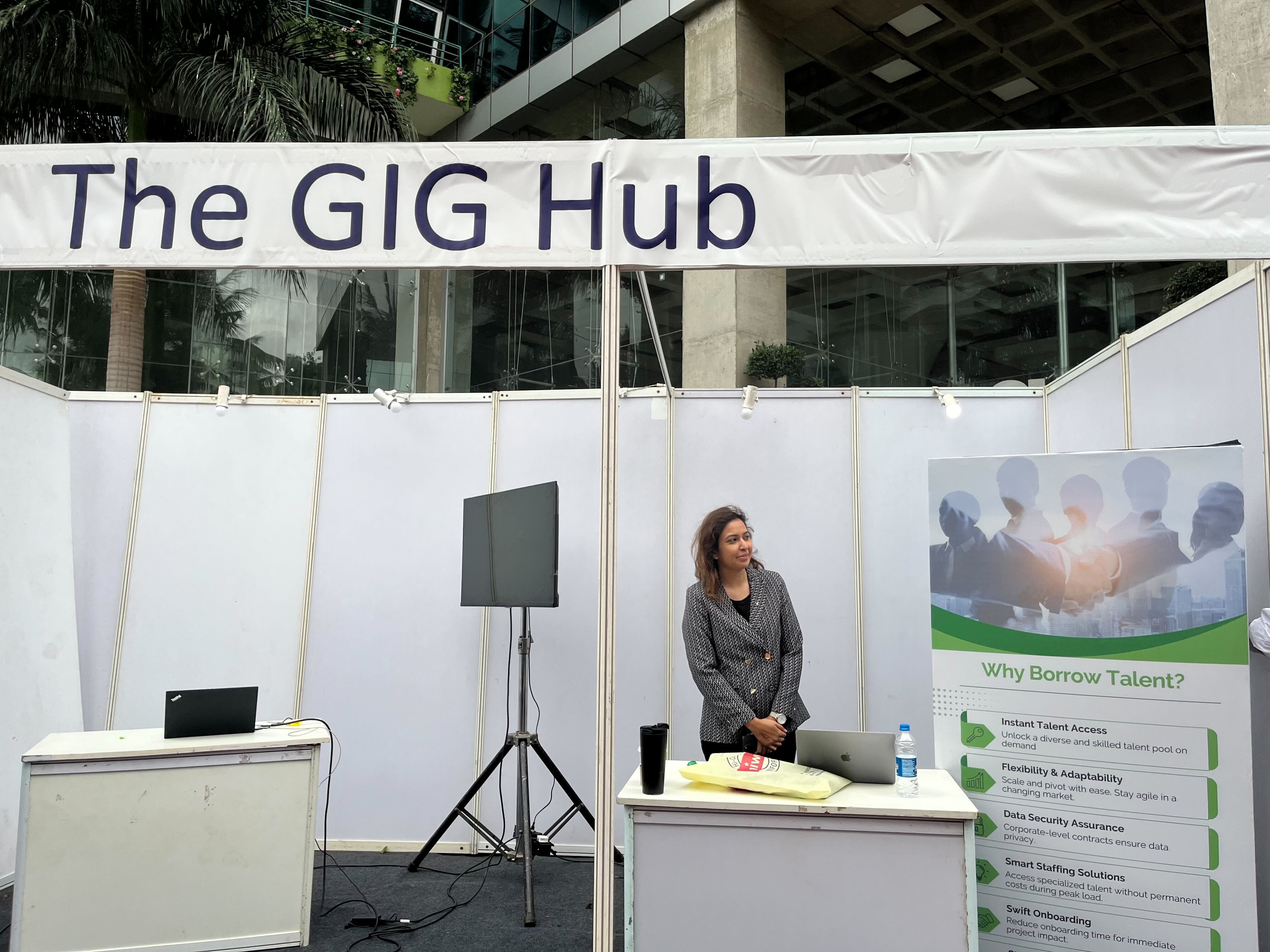Written by: Ranjini Sivaswamy
17/08/2015
7 minutes read
![eye]() 121
121
![share]() 0shares
0shares
In our last blog post on why companies should not shy away from hiring freelancers, we pointed out that not every job needs to be done in-house. Taking that to the next level and to add more conviction to your thought process, we decided to discuss the concept of Open Talent Economy – an evolution from traditional ways of closed organizational functioning towards more unbound environs. Deloitte, in 2013, announced to the world of human resources, the evolution of a new Open Talent Economy. The report [1]is a harbinger of how, like open source software, human talent will also move towards an open economy – creating borderless workspaces with the liquid workforce.
The Economist called the concept, “An economy that allows the unrestricted flow of people, capital, goods, and services across its borders; the opposite of a closed economy.”The idea that we can leverage an open talent source beyond the walls and rolls of your office, throws open multitudes of doors. We no longer have to “own every talent”. The Open Talent Economy will replace the need for ‘ownership of talent’ with the more significant‘ access to talent’. The insistence on hiring every possible talent that our business might need is among those many self-inflicted hazards that we are oblivious to. Hiring full-time employees are what everyone does, so we just followed suit causing several delays and inefficiencies in our organizations. Hiring cycles are long, we hire people whose skills are sporadically used and end up having inflated employee rolls. And moreover, highly skilled employees are now moving away from routine corporate jobs. The ‘meaning seekers’ and the entrepreneurial ones are fast becoming independent consultants and freelancers. The task of finding and retaining the right talent for full-time jobs just got tougher.
Explore new horizons of talent utilization
In an open talent economy, the boundaries of your organization become fluid. You are no longer confined to the capabilities that merely your organization’s employee rolls can provide. The Deloitte report writes, “Imagine how much potential would be unlocked if people at every level of an organization were empowered to reach beyond its walls to build and harness broader communities of remote work.” By opening up from the closed walls of an organization, the open talent economy promises huge possibilities. The dimensions that you can give to work would just expand. New ideas arise, new problem-solving techniques can be found and unidimensional thinking that is influenced by organizational routines can be replaced by multitudes of open perspectives.
We might have been impairing ourselves heavily by being in-house dependent all this while. In most companies, even cross-departmental talent sharing does not happen. By exploring a model where our in-house talent can be complemented by an open talent pool outside of the organization, we open up channels that help in achieving new heights in productivity and efficiency.
In this new environment, the inflow and outflow of human resources can be creatively managed. Your internal resource team can reach out to the external resource pool as and when the need arises. You also will be able to effectively use your in-house talent by building talent partnerships that involve employees, independent consultants, and freelancers. Pfizer, in 2008, found that its highly skilled workers were entangled in mundane tasks like report making and data entry for 20-40% of their time.[2] Realizing this talent wastage, Pfizer freed its employees from these routine tasks by contracting external resources to fulfill them. The future lies with such collaborative models that can leverage the best of talents within and outside of your organization.
Leverage the Power of the Crowd
Another fascinating way companies are opening up themselves are through crowd-sourcing of talent. Crowd-sourcing of talent is making waves with its ability to provide access the best talents across the world and the possibility of creating world-class results. There are various talent communities to which you can crowdsource your projects- design communities, developer communities, writer communities and many more. Business Insider writes about one such successful crowd-sourcing projects, “In 2012 Colgate-Palmolive, a consumer-goods company, offered $US17,000 to anyone who could make a 30-second advertisement for the internet. The ad was so good that the company showed it at the Super Bowl alongside blockbuster ads that cost hundreds of times more. The set-up uses the full most of the capabilities and advantages that make on-demand business models attractive: no need for offices; no full-time contract employees; the clever use of computers to repackage one set of people’s needs into another set of people’s tasks; and an ability to access spare time and spare cognitive capacity all across the world.”
The social media, online talent platforms and mobile technology has been able to democratize, mobilize talent and simplify access the blended workforce. This makes crowd-sourcing a huge opportunity in an Open Talent Economy.
Shift gears to catch up with talent paradigm shift
The global megatrends of globalization, mobile, education, technology, social business, and analytics are changing the way our businesses are functioning across the world. The Open Talent Economy is an offshoot of these megatrends which will also nudge our business strategies to move from a closed economy to an open one. The call to action is for adaptation to the change with smart talent strategies, investment in talent, and measurement of talent outcomes.
As the Open Talent Economy gains pace, here are few perspectives you might want to consider to catch up with the change.
- You need not restrict your work to only those people who can come in it to your office every day and clock 9 hours of work. For sure you are missing out on those million other people who are not making this commute.
- The Open Talent Economy proposes a talent continuum that will reach out to various talent pools: Balance sheet talent, which are your employees, Partnership talent or outsourced talent, borrowed talent, hiring talent from the rolls of other companies, freelancers, and then Open Source Talent. Start looking at how you can work out a combination of this variety of resource pools.
- The Open talent economy also calls for a paradigm shift from the traditional myopic outlook that human resource is an expenditure. Talent is an investment, an asset that needs to be managed efficiently so that you have your business objectives met as an ROI.
- The variety of talent that you get access gets expands with open talent economy. Embracing the Open Talent Economy will also mean that we do away with talent mediocrity. When high-quality talent is available outside of the organization, the excuses for hiring mediocre talent wouldn’t hold good.
The Deloitte report concludes saying, “An organization that embraces the concept of the open talent economy will be poised to embrace its opportunities and immerse itself more effectively in the entire global talent market—the part it manages directly, the parts it hopes to influence, and the places where it wants to gain new access.” So, where do you stand? How ready are you for an open talent economy?
*********
[1]http://www2.deloitte.com/content/dam/Deloitte/global/Documents/HumanCapital/dttl-hc-english-opentalenteconomy.pdf
[2]http://www.economist.com/news/briefing/21637355-freelance-workers-available-moments-notice-will-reshape-nature-companies-and





 `
`  121
121
 0shares
0shares





